As an Amazon Associate I earn from qualifying purchases.
Chinese twice cooked pork belly is one of those little luxuries. It is a Sichuan dish where you first simmer pork, usually pork belly, until it’s tender, then you stir-fry the pork with leeks and black beans.
And yes, double cooked pork is fatty. Silky. Lush.
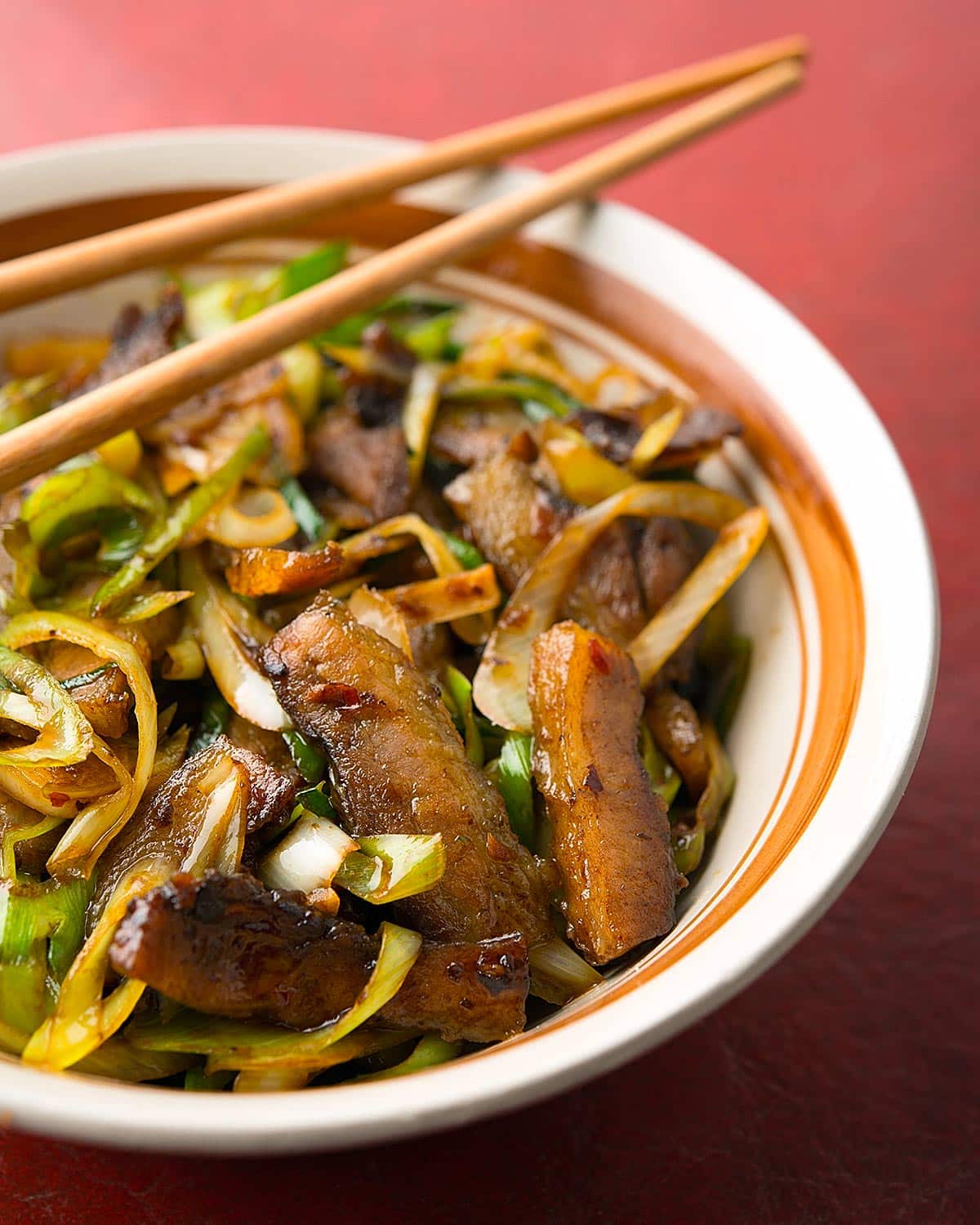
I had never even heard of twice cooked pork belly until about eight years ago, when a new Chinese restaurant opened up down the street. I wandered into the Sichuan Spice House wondering what, if anything might be good there.
When I opened the menu I was astonished: Tripe. Spicy wontons. Lamb with cumin. Crispy fish served whole. And this twice cooked pork belly. Wow. Real Chinese, I thought. When the food came, I was stoked: Real-deal Sichuan cooking in my little neighborhood!
Since then I’ve eaten their twice-cooked pork belly probably a hundred times. Fatty yet meaty. Super savory from black beans, all brightened by lots and lots of leeks.
What I like the most is that the cook decided to use even the tougher green part of the leek, which most cooks use only for stock; the green parts give the dish a contrast in texture and are stronger in flavor than the white parts, as you might expect.
The process of making double-cooked pork renders out a lot of fat, so even though it’s pork belly, it is not as fatty as, say, red cooked pork belly. Plus, you then stir-fry sliced until they are nicely browned.
Mostly you will be using farmed pork belly here, but I have used belly meat from wild hogs and bear, too. If you can’t get belly, the fattiest parts of pork shoulder will work in a pinch.
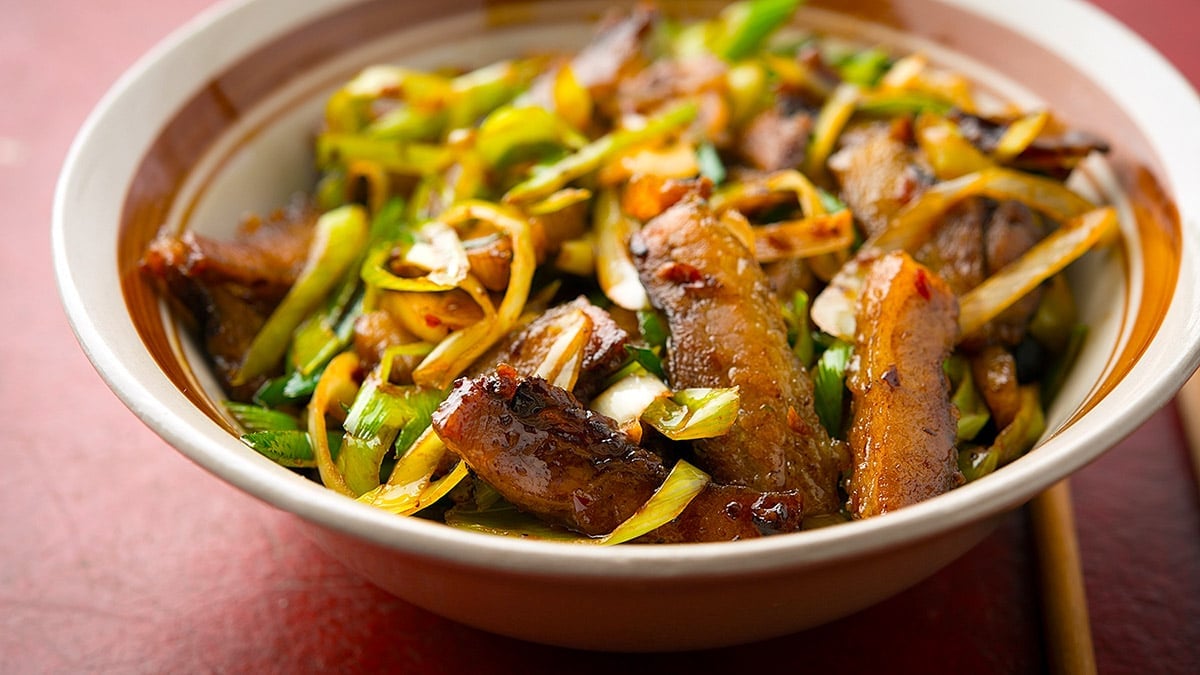
My recipe is an amalgam of several, but I am especially indebted to my friend Kho Kiam Lam over at the Red Cook blog. His website is a treasure trove of real-deal Chinese recipes.
Serve your twice cooked pork belly with steamed rice and a beer. It reheats very well, too, and will last a week in the fridge.
Sichuan Twice-Cooked Pork Belly
Ingredients
- 1 to 1 1/2 pounds uncured pork belly (do not use bacon)
- 3 medium-sized leeks, sliced in half then in pieces you can pick up with chopsticks
- 3 tablespoons peanut oil or lard, reduce by 1 tbsp if your pork is very fatty
- 1 tablespoons chile bean paste
- 3 tablespoons black bean sauce
- 1 tablespoon Shaoxing cooking wine, or dry sherry
- 2 teaspoons soy sauce
- 2 teaspoons sugar
- Salt to taste
Instructions
- Bring a large pot of water to a boil and add a healthy pinch of salt to it. Drop the pork belly in it and lower the heat until the water is barely simmering. Cook domesticated pork belly like this for about 45 minutes, or wild pig belly for up to 2 hours; somewhere around 90 minutes is normally about right. Remove the pork belly and set on a plate in the freezer to chill.
- When the pork belly has chilled through, which should take 30 to 60 minutes, slice it thinly across the grain. You want thin squares or rectangles you can pick up with chopsticks.
- Heat a wok or large sauté pan over high heat until it's good and hot. Add the peanut oil and swirl it around, then add the pork belly. Arrange the pork belly in one layer all around the wok and let it sear like this for a minute or two, until it gets a little browned and starts to release some fat. Toss to flip and use tongs or chopsticks to make sure the pork is cooking on the opposite side. Let this cook for a minute or two. Remove the pork for now.
- Add the chile bean paste, black bean paste, cooking wine and leeks. Stir-fry over high heat until the leeks are bright green and glossy, about 2 minutes. Add the pork back and stir-fry another minute. Add the cooking wine, soy and sugar and stir-fry another few seconds. Serve over rice.
Notes
Nutrition
Nutrition information is automatically calculated, so should only be used as an approximation.

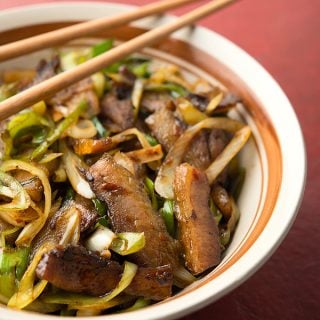
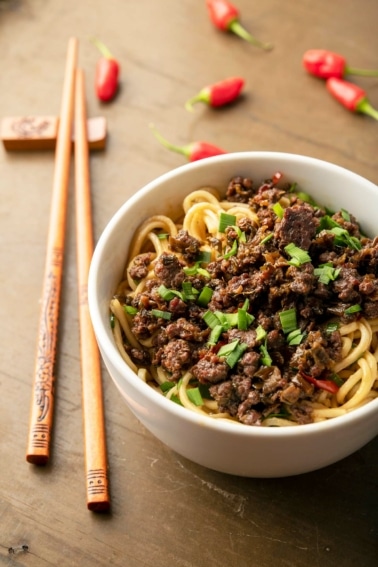

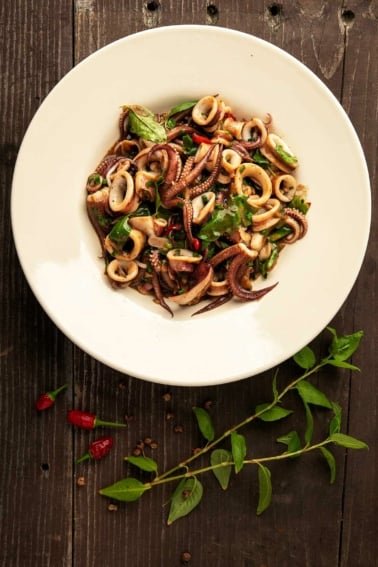
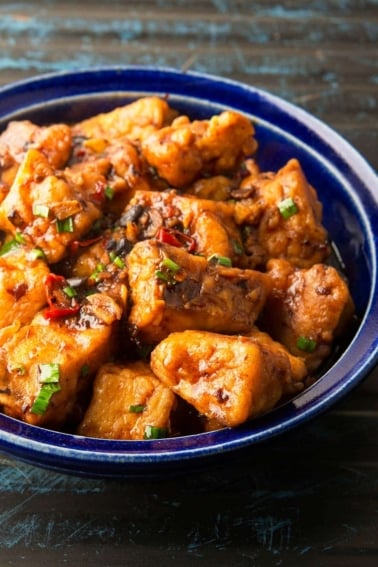
Made this last night with wild-hog belly from a fat sow we shot last winter. It was a big hit with the whole family.
Instead of simmering, I did the first cook in my Anova sous-vide setup, 2 hrs. at 197°F. A good amount of fat and juice came off the belly, which I was able to reserve thanks to the vac-bag. I used some of that fat for the wok. I used dry sherry instead of Shingxiao, and hoisin instead of chile bean sauce.
I found it a wee bit bland, but that was fine with my kids, and a splash of soy sauce and a dash of sriracha brought it to perfect. The pork was amazing, I’ve done a lot of wild-hog dishes that came out real tough and chewy, but this was perfect crispy and tender.
Tonight I’ll use the other half of the 3.5 lb. belly that I thawed to try the Red Braised Pork.
Ha! I just happen to have some pork-belly left from our hunt in Texas in May! Been wondering how I’d use it!
How can you call this Sichuan, with Sichuan pepper or chili peppers. Sichuan means spicy!
Laurentius: Clearly you have a limited knowledge of Sichuan cooking. This recipe is directly from Sichuan sources.
Definitely second the Fuchsia Dunlop love. If you’re craving authentic Sichuan, “Land of Plenty” is the place to go. She has a (cooked!) cucumber appetizer that is a taste sensation. And the “strange flavor peanuts”…
Wade: Since nobody I know hunts boar and I can’t get my hands on pork belly, I use shoulder wherever Hank’s recipes call for belly. Tried it with several different recipes… It’s probably not as delicious but I’ve never been disappointed with the result!
Haha, I was just reading the recipe for this in Fuchsia Dunlop’s ‘Land of Plenty’ last night. (Because we always have a couple cookbooks to idly read on our coffee table. Perfectly normal…) She omits the rice wine and uses baby leeks. But I’ve been itching to try my hand at this, and some red cooked belly as well. Did a Brewer’s Dinner last week to support a local wildlife shelter. Chef’s second course was our IPA paired with an Asian noodle salad with red cooked belly from a local farm, whose farmer gets our spent grain for his pigs. Circle of life!
Wade: I would not use backstrap — too lean. Maybe try shoulder, which I’ve seen used in Chinese recipes for this.
This is one of my favorite Sichuan dishes too…. Don’t be scared of the belly, just don’t eat a giant bowlful….. Though that may be difficult once you start…… Just make sure you go at least the 45 mins on the first simmer or it can get a little heavy/greasy…..
Hope to get a boar in UP Michigan next month, can’t wait to try this out!
I agree with Sean C. as well. This site has caused me to have to start exercising to support my eating habit!
Hi Hank. Can you use another cut of pork? Back strap, if it has a bit of fat on it?
Hank, I’ve been following your blog for some time now and this recipe just congealed my thoughts: Thank God for a ridiculously high metabolism or reading (and much less the making and then consuming) of your recipes would have me morbidly obese.
The descriptions are well written and the dishes simply delicious.